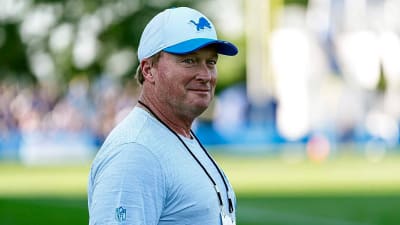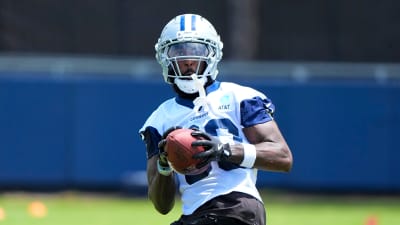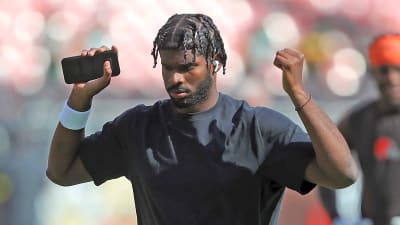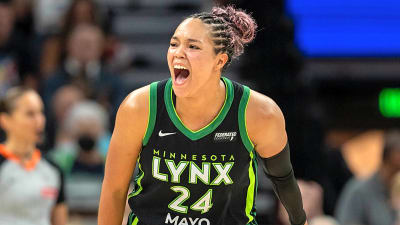
The checkered flag had barely settled at Kansas Speedway when NASCAR officials dropped the hammer on Carson Hocevar. A hefty $50,000 fine landed on the young driver’s desk Wednesday morning, and let me tell you, this one stings more than just his wallet. Racing is an emotional sport.
We’ve all seen drivers lose their cool after a tough break or a mechanical failure ends their day early. But there’s a line between showing frustration and putting safety workers at risk, and Hocevar crossed it spectacularly during Sunday’s Hollywood Casino 400.
What Hocevar Did Wrong at Kansas
Picture this. You’re running 13th with just 13 laps to go in a crucial playoff race. Your car suddenly goes sideways on the backstretch, spinning to a halt with multiple flat tires. Your day is done, your playoff hopes take another hit, and the frustration is boiling over. That’s exactly where Carson Hocevar found himself on lap 260 of 273.
But here’s where things went sideways both literally and figuratively. After safety personnel had arrived at the crash scene to assist him, Hocevar decided to rev his engine and spin his tires in an attempt to rejoin the field, with safety workers standing by to attend to his disabled race car.
Think about that for a second. These are the men and women who risk their lives every single weekend to keep our drivers safe. They’re the ones who sprint onto an active race track when something goes wrong, trusting that drivers will respect their presence and act accordingly. Hocevar’s actions put those people in unnecessary danger, and NASCAR wasn’t having any of it.
The Price of Poor Judgment
NASCAR officials didn’t hesitate to throw the book at Hocevar. The violation fell under Sections 4.4.B and D of the NASCAR Rule Book – Member Conduct – and the punishment was swift and severe. Fifty thousand dollars doesn’t just hurt your bank account. It sends a message to every driver in the garage about what happens when you endanger safety personnel.
This wasn’t Hocevar’s first incident of the day either. The Kansas race had already been a nightmare for the 22-year-old driver, marking his second mishap. He ultimately finished P29 in the 37-car field, four laps down, with his playoff chances taking yet another blow.
For a driver trying to establish himself in the Cup Series and make a name with Spire Motorsports, this kind of penalty is devastating. It’s not just about the money, though $50,000 is serious cash for any racing operation. It’s about reputation, about showing the garage that you understand the unwritten rules that keep everyone safe.
Why Safety Worker Respect Matters
The men and women who work NASCAR’s safety crews don’t get nearly enough credit for what they do. Every single weekend, they put themselves in harm’s way to help drivers who’ve found themselves in trouble. They sprint onto tracks where cars are still circulating at 180 miles per hour, all because someone needs help.
These aren’t just faceless officials in fire suits. They’re somebody’s father, mother, son, or daughter. They have families waiting for them at home, hoping they return safely after every race weekend. When a driver like Hocevar shows disrespect for their safety by trying to drive away while they’re attending to their car, it’s not just poor judgment. It becomes dangerous.
The racing community has always taken pride in looking out for one another. From drivers helping pull competitors from burning cars to crews sharing parts when someone’s in a bind, there’s an unspoken code of conduct that governs how we treat each other. Hocevar’s actions violated that code in the worst possible way.
Learning Moments for Young Drivers
At 22 years old, Carson Hocevar is still learning the ins and outs of Cup Series racing. The talent is clearly there, because you certainly don’t make it to NASCAR’s premier series without serious skill behind the wheel. But talent alone isn’t enough to succeed at this level. It takes maturity, respect for your competitors, and above all, respect for the people who keep this sport safe.
This $50,000 lesson should serve as a wake-up call, not just for Hocevar but for every young driver coming up through the ranks. The spotlight in Cup Series racing is brighter, the consequences are bigger, and the margin for error is smaller than anywhere else in motorsports.
Final Thoughts
Frustration is part of racing. Equipment failures, bad luck, and disappointing finishes are part of the territory. However, how you handle that frustration defines you as both a driver and a person. Hocevar learned that lesson the hard way at Kansas, and hopefully, it’s one he won’t forget anytime soon.
The good news is that this doesn’t have to define Carson Hocevar’s career. Plenty of great drivers have had moments they’d rather forget, moments that taught them valuable lessons about professionalism and respect.
If he takes this penalty to heart and uses it as motivation to be better, this $50,000 fine could end up being one of the best investments in his racing education. But right now, it’s just an expensive reminder that in NASCAR, respect for safety always comes first, no matter how frustrated you might be.
More must-reads:
- NASCAR power rankings: Joe Gibbs Racing takes over the top spot
- Zane Smith is OK after terrifying flip in NASCAR race at Kansas Speedway
- The 'MLB playoff debut strikeouts leaders' quiz
Customize Your Newsletter
 +
+
Get the latest news and rumors, customized to your favorite sports and teams. Emailed daily. Always free!








